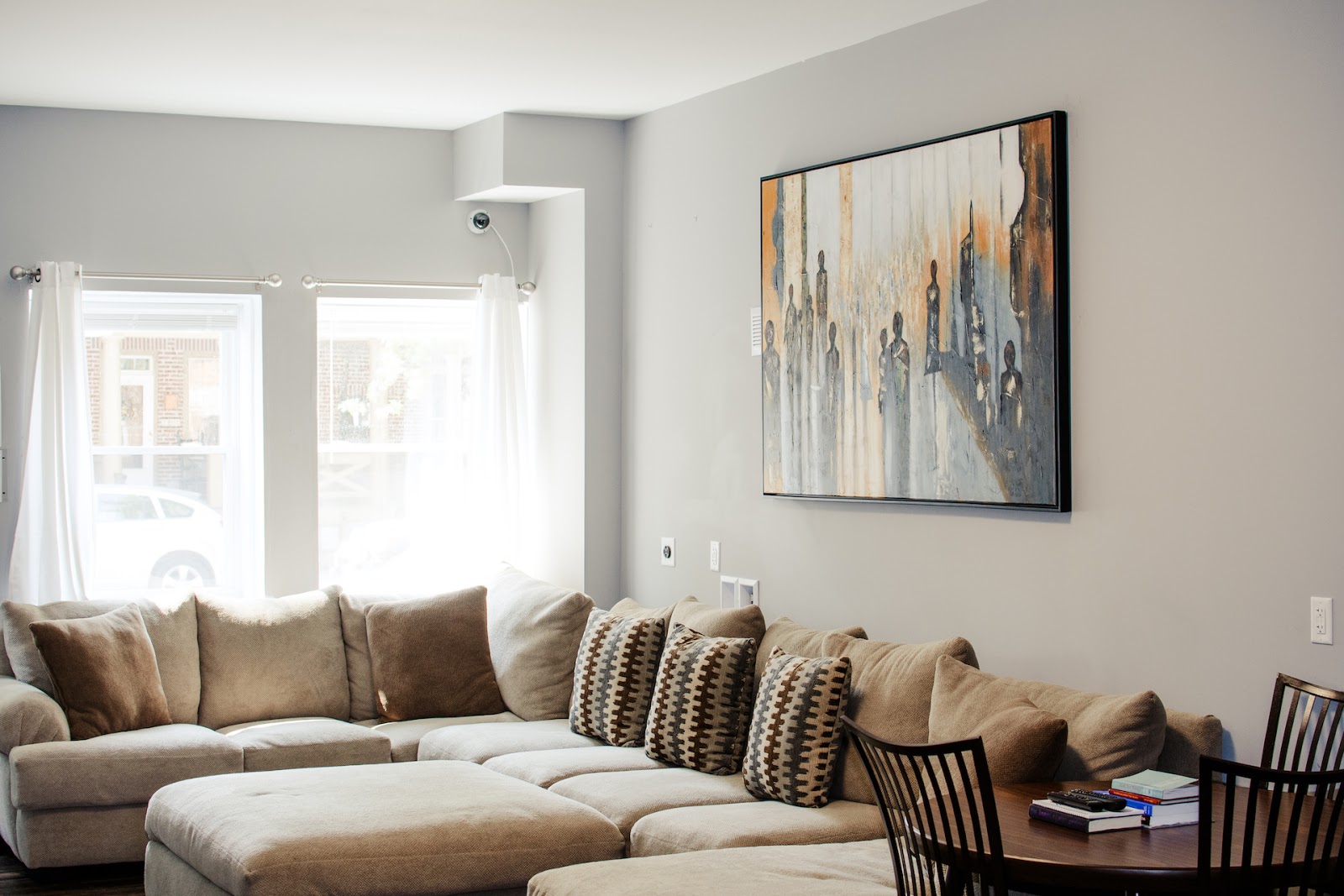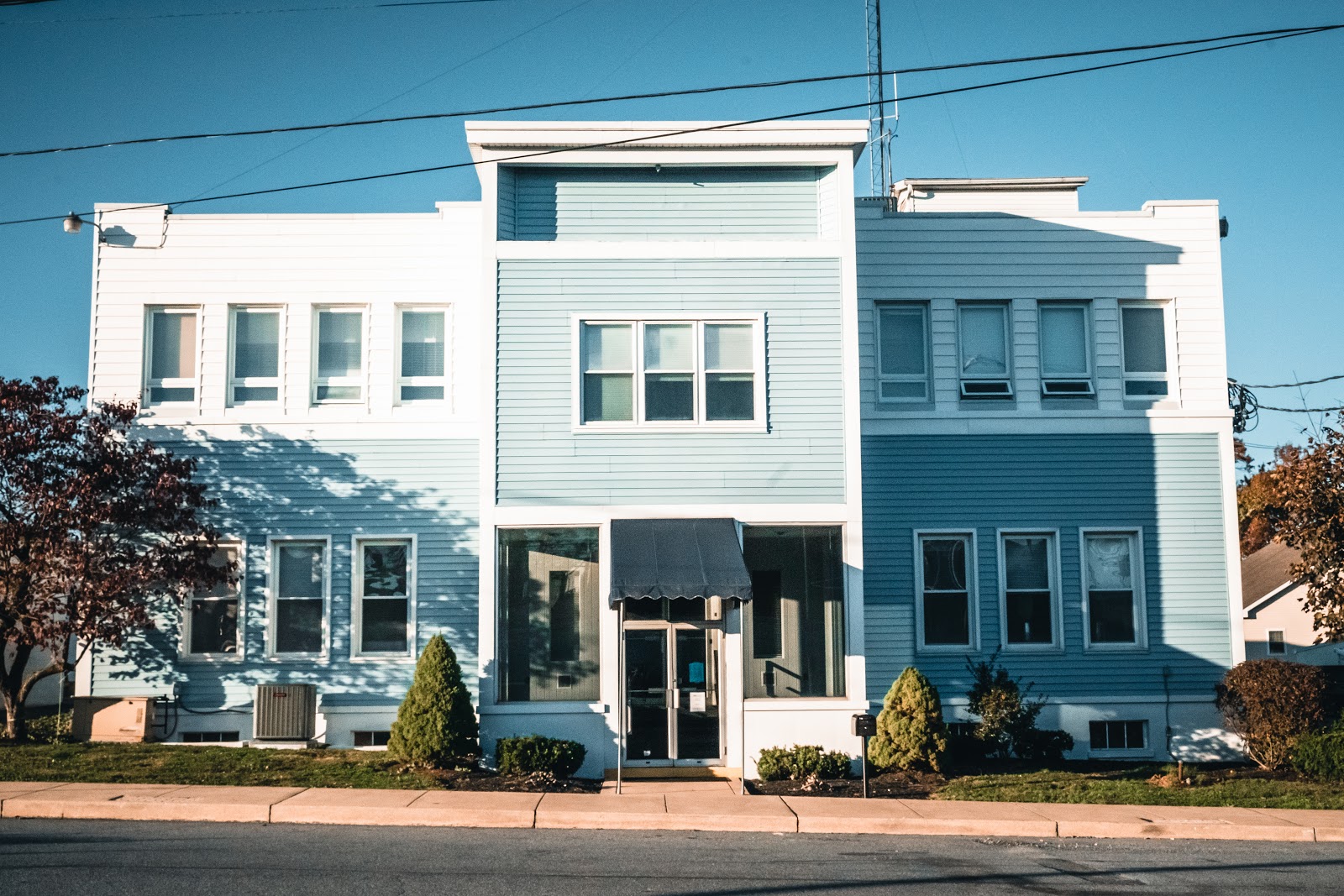Blueprints for Addiction Recovery
Overview
Blueprints for Addiction Recovery is an accredited substance abuse treatment center that provides inpatient and outpatient detoxification, for men between 18 and 65+ years of age. As part of their special programs, Blueprints for Addiction Recovery treats clients who have experienced trauma, clients with co-occurring mental and substance use disorders, and clients who have experienced sexual abuse. To help patients achieve sobriety, Blueprints for Addiction Recovery provides treats cocaine detoxification, methamphetamines detoxification, and opioids detoxification.. Afterward, patients receive individual psychotherapy, dialectical behavior therapy, and trauma-related counseling during treatment. Blueprints for Addiction Recovery is located in Mount Joy, Pennsylvania, providing treatment for people in Lancaster County, accepting cash or self-payment, medicaid, and state-financed health insurance plan other than medicaid.
Blueprints for Addiction Recovery at a Glance
Payment Options
- Cash or self-payment
- Medicaid
- State-financed health insurance plan other than Medicaid
- Private health insurance
- Federal, or any government funding for substance use treatment programs
Assessments
- Comprehensive substance use assessment
- Screening for tobacco use
- Comprehensive mental health assessment
- Interim services for clients
- Outreach to persons in the community
Age Groups
- Adults
- Seniors
- Young adults
- Seniors or older adults
Ancillary Services
- Case management service
- Integrated primary care services
- Suicide prevention services
- Mental health services
- Social skills development
Accreditations
LegitScript:

Only after successfully completing a rigorous application process, programs and services achieve LegitScript certification. This process, which commenced in 2018, aims to qualify only reputable providers of mental health and co-occurring substance abuse treatment for inclusion on Google's network while ensuring compliance with HIPAA privacy laws.
State department of health:

State Licenses, issued by government agencies, authorize rehabilitation organizations to legally operate within designated geographical areas. The specific licenses required for operation are typically determined by both the nature of the rehabilitation program provided by the facility and its physical location.
The Joint Commission:

The Joint Commission accreditation signifies that a facility has met rigorous standards of excellence in patient care, treatment, and safety. It assures individuals and healthcare professionals that the accredited facility provides high-quality, evidence-based care for addiction and mental health issues, fostering trust and confidence in their services.
Treatment At Blueprints for Addiction Recovery

Conditions Treated
Alcoholism:
Alcohol addiction is a disease that changes the way the brain works. It causes negative emotions, impulsive behavior, cravings and withdrawal symptoms. Treatment for alcohol addiction includes supervised detox, counseling and therapy, and support group participation. Rehabilitation does not cure alcoholism. Instead, it helps the individual manage their addiction, restore their functioning, and well-being.
Substance use treatment:
Substance abuse treatment programs can help to address addiction and, if relevant, any co-occurring mental health conditions. Programs include outpatient, inpatient, dual-diagnosis, and partial hospitalization. The addict will receive therapies like cognitive behavioral therapy, or dialectical behavioral therapy, and sometimes complementary therapies like acupuncture and mindfulness-based therapy. By attending skills training and recovery groups you’ll build a strong foundation for your recovery and strengthen your support network, increasing your chances of long-term recovery success.
Mental health treatment:
Mental health treatment involves a range of therapeutic approaches, provided by licensed professionals, to address mental health challenges. It includes psychotherapy, medication, and holistic practices to help individuals manage conditions, improve coping skills, and enhance overall well-being. The goal is to empower individuals to lead fulfilling lives and reduce the stigma surrounding mental health.
Co-occurring Disorders:
Dual-diagnosis rehabs are usually the appropriate solution to treat co-occurring mental health and substance abuse disorders. These facilities typically employ medical and behavioral experts who use a range of interventions, together with the right healing environment, for you to achieve and sustain long-term recovery. Treatment usually includes evidence-based therapies (like cognitive behavioral therapy), recovery support meetings, 12-step facilitation, psychoeducation, skills training, and group therapy.

Levels Of Care
Intensive outpatient treatment:
Intensive Outpatient (IOP) is a specialized level of care aimed at assisting those on their recovery journey from addictions or mental health disorders. Unlike the inpatient or residential treatments where attendees reside within the facility, IOP offers a robust therapeutic experience while enabling participants to stay home and continue their daily routines. Generally, individuals in IOP engage in several sessions weekly, clocking in at around 9-20 hours or even more. These sessions encompass individual counseling, group sessions, familial guidance, and instructional classes that equip attendees with the tools and methods to manage symptoms and avert relapses.
Aftercare:
Finishing a drug or alcohol rehab program is just the beginning of the recovery journey. Aftercare focuses on establishing a long-term recovery plan, which encompasses continuous support. This might involve options such as residing in sober living homes or halfway houses, receiving career guidance, and connecting the individual with community support groups like Alcoholics Anonymous (AA) or Narcotics Anonymous (NA).
Outpatient:
Outpatient treatment in a rehab center offers flexible therapy sessions, typically ranging from 1-3 hours per week, allowing individuals to continue daily activities while receiving care. In contrast, intensive outpatient programs demand a more rigorous commitment, often involving 9-15 hours weekly, providing a more immersive therapeutic environment without the need for inpatient stays.
Hospital inpatient treatment:
Inpatient treatment involves a comprehensive residential therapeutic program where patients stay on-site for a duration typically ranging from 30 to 90 days. This immersive environment offers structured support, ensuring safety and a focus on recovery. Therapies provided include individual and group counseling, cognitive-behavioral therapy, holistic treatments, family therapy sessions, and experiential therapies. The aim is to address addiction or mental health disorders' physical, emotional, and psychological aspects, laying a robust foundation for sustained healing.
Outpatient detoxification:
Outpatient Detoxification is a medical procedure designed for individuals dealing with substance dependence. It involves a carefully managed and supervised withdrawal from these substances, all without the need for hospitalization or inpatient care. This approach empowers patients to undergo detox from drugs or alcohol within a less confining setting, permitting them to sustain their regular daily obligations such as work or family responsibilities. Comprehensive monitoring, medication administration, counseling, and supportive measures are provided to effectively manage withdrawal symptoms and minimize potential complications.
Outpatient methadone/buprenorphine or naltrexone treatment:
Buprenorphine, sold under brand names such as Subutex, is a drug used to address opioid addiction. It can lessen or significantly diminish withdrawal effects, making the cessation of opioid use more manageable. Frequently paired with naloxone, the dosage is tailored to each person's specific needs. Some individuals prefer prolonged buprenorphine use, while others gradually decrease their dosage with the aim of ceasing its consumption.
Outpatient day treatment or partial hospitalization:
Outpatient day treatment or partial hospitalization level of care is a type of mental health treatment that provides a high level of care outside of a traditional inpatient setting. It typically involves intensive therapy and support services for several hours each day, several days per week. This level of care is designed for individuals who require more support than traditional outpatient therapy but do not need 24-hour inpatient care.
Halfway house:
A sober living home offers a supportive environment where individuals in recovery provide mutual support as they share household responsibilities. Residents participate in 12-step programs and offer accountability for sobriety. To remain in men’s or women’s sober living, individuals must remain drug and alcohol-free, contribute to chores, attend support group meetings, and help cover expenses to live in the home.

Treatment Modalities
Individual psychotherapy:
Individual therapy, often referred to as psychotherapy or counseling, is a one-on-one therapeutic interaction between a trained therapist and a client. It provides a confidential space for individuals to explore their feelings, beliefs, and behaviors, working through challenging memories, experiences, or emotions. The therapist facilitates self-awareness, promotes personal growth and insight, and offers coping strategies to manage specific issues like stress, anxiety, depression, and other life challenges. The ultimate goal is to improve the individual's mental well-being and enhance their overall quality of life.
Dialectical Behavior Therapy:
Dialectical Behavior Therapy (DBT) is a cognitive-behavioral therapeutic approach primarily to treat individuals with borderline personality disorder. It combines standard cognitive-behavioral techniques with distress tolerance, acceptance, and mindfulness concepts. DBT emphasizes the balance between accepting and changing behaviors, aiming to help patients build life skills, regulate emotions, and improve interpersonal relationships. It has since been adapted for and shown effectiveness in treating a variety of other mental health conditions.
Trauma-related counseling:
Trauma therapy addresses the deep-seated emotional and psychological wounds often linked with substance abuse disorders. Recognizing that traumatic experiences can be a root cause or a significant contributing factor to substance addiction, this therapeutic approach seeks to help individuals understand, process, and heal from their traumas. Doing so fosters emotional healing and bolsters the individual's chances of long-term recovery from addiction. Integrating trauma-informed care into addiction treatment ensures a comprehensive approach that addresses substance abuse's symptoms and underlying causes.
12-step facilitation:
Recovery approaches rooted in 12-step programs prioritize extensive peer mentorship and highlight personal development as a cornerstone for maintaining sobriety. Attending 12-step meetings, which are confidential, cost-free, and held daily, is a fundamental component. The 12 steps are grounded in spiritual tenets, guiding participants to confront the core issues of their addiction, assume accountability for their decisions, and recognize aspects out of their control. Chosen sponsors offer individualized guidance and support.
Cognitive behavioral therapy:
Cognitive Behavioral Therapy (CBT) is a therapeutic approach that emphasizes the interconnectedness of thoughts, emotions, and actions. It promotes healthy reactions to thoughts and emotions, steering individuals away from harmful responses such as substance abuse. Proven effective for various addiction recoveries, CBT enhances an individual's self-awareness and self-control. Through CBT, individuals learn to better gauge their emotional well-being, communicate more effectively, and handle stress without resorting to drugs or alcohol.
Telemedicine/telehealth therapy:
Telehealth Therapy allows individuals to access mental health services remotely via secure video conferencing. This level of care offers qualified therapy from the comfort of one's home, removing geographical barriers and often reducing wait times. Ideal for those with mobility challenges, tight schedules, or those in rural areas, it combines convenience with consistent, high-quality mental health support.
Substance use disorder counseling:
Substance use disorder counseling treatment modalities refer to various approaches and methods used in the counseling and treatment of individuals with substance use problems. This can include individual therapy, group therapy, cognitive behavioral therapy, motivational interviewing, family therapy, and 12-step programs. The goal is to help the individual overcome their substance use, develop healthy coping skills, and lead a fulfilling life in recovery.
Smoking/vaping/tobacco cessation counseling:
Vaping Cessation Counseling is a specialized form of support designed to help individuals overcome their dependence on electronic cigarettes or vaping products. Through evidence-based strategies, personalized advice, and emotional support, counselors guide individuals towards a nicotine-free life, emphasizing the long-term health benefits of cessation.
Group counseling:
Group therapy entails therapeutic sessions conducted in a collective setting rather than one-on-one. It encompasses various modalities, from support groups and experiential therapy to psycho-education and beyond. The approach focuses on treatment and emphasizes the dynamic interactions and shared experiences among group members.
Family counseling:
Family Counseling is a therapeutic approach that seeks to address and improve communication, understanding, and dynamics within a family unit. By addressing conflicts, emotional distress, and behavioral challenges, a trained therapist provides guidance and tools for family members to strengthen bonds, resolve issues, and foster a healthier family environment.
Marital/couples counseling:
Marital/couples counseling treatment modalities refer to various therapeutic approaches used to help couples resolve conflicts, improve communication, and strengthen their relationship. These modalities can include cognitive-behavioral therapy, emotionally focused therapy, solution-focused therapy, and integrative approaches. The goal of these treatments is to help couples identify and address underlying issues and develop healthy relationship dynamics.
Intervention Services:
Intervention services assist families and friends of addicts in orchestrating an intervention, a meeting where concerned individuals express their worries and urge the addict to seek treatment. Expert interventionists aid in planning, assembling, and conversing with the affected individual. They direct participants on how to convey the adverse effects of the addict's actions and emphasize the need for external assistance to tackle the addiction. The ultimate goal of an intervention is to encourage the addict to enter rehab and receive the necessary help.
Motivational interviewing:
Motivational Interviewing (MI) is a client-centered counseling approach designed to enhance an individual's intrinsic motivation to change by exploring and resolving ambivalence. Through empathetic engagement and evoking personal reasons for change, MI helps individuals recognize the negative consequences of their substance use and empowers them to take steps toward recovery.
Anger management:
"Anger Management" refers to a set of techniques and strategies designed to help individuals recognize and control their anger. Through a combination of cognitive behavioral therapy, self-awareness exercises, and coping mechanisms, individuals can better understand the triggers and reactions associated with their anger, ensuring they respond more positively and constructively. Effective anger management prevents potential conflicts and outbursts and promotes healthier relationships and emotional well-being.
Relapse prevention:
The Relapse Prevention Model is a cognitive-behavioral approach designed to help individuals anticipate and effectively cope with potential challenges and high-risk situations that may lead to a return to undesired behaviors, often after a period of abstinence or behavior change. This model emphasizes the importance of recognizing early warning signs, developing coping strategies, and building self-efficacy to sustain positive change and avoid setbacks. Commonly used in addiction therapy, it can also be applied to other areas where behavior change is sought, such as weight management or anger control.
Ancillary Services
Languages
- Spanish
Additional Services
- Pharmacotherapies administered during treatment
- Mentoring/peer support
- Breathalyzer or blood alcohol testing
Special Programs
- Clients who have experienced trauma
- Clients with co-occurring mental and substance use disorders
- Clients who have experienced sexual abuse
- Clients who have experienced intimate partner violence, domestic violence
Contact Information
DISCLAIMER: The facility name, logo and brand are the property and registered trademarks of Blueprints for Addiction Recovery, and are being used for identification and informational purposes only. Use of these names, logos and brands shall not imply endorsement. BetterAddictionCare.com is not affiliated with or sponsored by Blueprints for Addiction Recovery.










